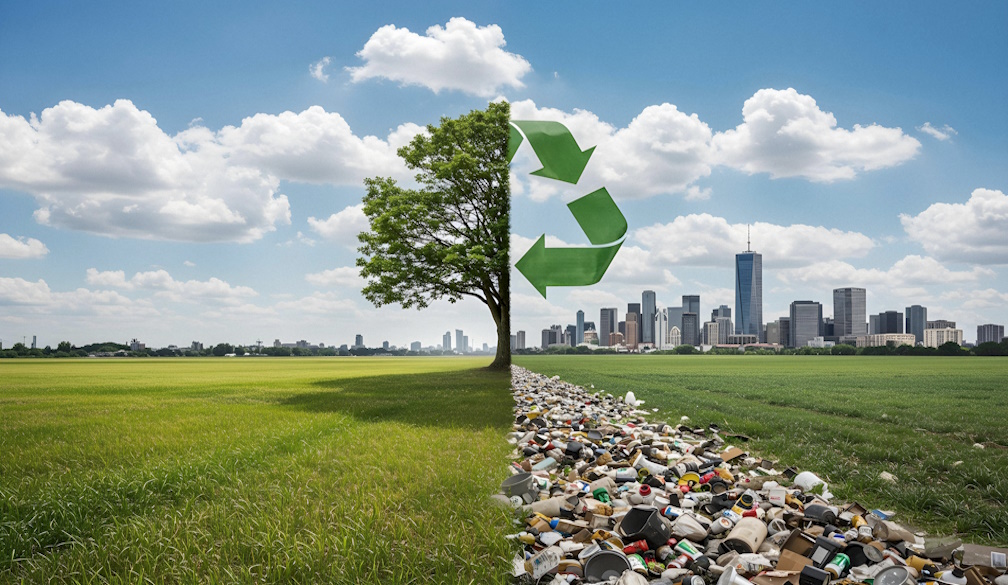Waste Management Solutions: Building a Cleaner and More Sustainable Future

Proper waste management is one of the cornerstones of environmental sustainability and public health. As populations grow and consumption increases, managing waste efficiently has become a pressing global challenge. Businesses, local councils, and households all play a vital role in addressing this issue through innovative and responsible waste management solutions. From recycling and composting to advanced collection systems and sustainable disposal methods, the goal is to reduce environmental impact while maximising resource recovery and operational efficiency.
The Importance of Effective Waste Management
Without structured waste management, the accumulation of rubbish leads to pollution, greenhouse gas emissions, and health hazards. Effective waste management ensures that materials are collected, processed, and disposed of in ways that minimise harm to the environment and protect communities.
It also supports circular economy principles, where waste is viewed as a resource rather than a problem. By reusing, recycling, and recovering materials, societies can reduce landfill dependency and conserve valuable natural resources.
Modern Approaches to Waste Management
Today’s waste management solutions go beyond basic rubbish collection. They integrate technology, sustainability, and policy to create efficient systems tailored to different waste streams.
These include household waste, commercial waste, construction debris, and hazardous materials. Companies and municipalities now use data-driven approaches to track waste generation, optimise collection routes, and improve recycling rates. Smart bins, waste audits, and automated sorting systems are transforming how waste is managed from start to finish.
Recycling and Resource Recovery
Recycling remains one of the most impactful components of waste management. It reduces the need for raw materials, lowers energy use, and decreases pollution.
Modern recycling facilities sort paper, glass, plastics, and metals using advanced technologies such as optical scanners and magnetic separators. These recovered materials are then reprocessed into new products, supporting sustainable production cycles.
Incorporating recycling bins and awareness programs in workplaces, schools, and homes ensures that individuals actively contribute to reducing waste and preserving resources.
Commercial Waste Management Solutions
Businesses generate large volumes of waste daily — from packaging materials to electronic waste. Implementing structured waste management plans helps organisations comply with environmental regulations and reduce operational costs.
Professional waste management companies offer tailored services, including segregated bins, scheduled collections, and recycling programs. Many also provide waste audits to identify inefficiencies and opportunities for improvement, allowing companies to operate more sustainably while reducing landfill waste.
Organic and Food Waste Management
Food and organic waste make up a significant portion of overall rubbish, especially in urban environments. Composting and anaerobic digestion are effective waste management solutions that convert organic waste into valuable by-products.
Composting turns food scraps and garden waste into nutrient-rich soil, while anaerobic digestion produces biogas, which can be used as renewable energy. Both methods significantly reduce methane emissions compared to landfill disposal, contributing to cleaner air and healthier ecosystems.
E-Waste Management
Electronic waste, or e-waste, is one of the fastest-growing waste streams worldwide. Disposing of electronic devices improperly leads to the release of toxic substances such as lead and mercury.
Responsible e-waste management involves collection, refurbishment, and recycling of old electronics. Many companies now partner with certified recyclers to ensure safe handling and recovery of valuable materials like copper and gold. This not only prevents pollution but also supports a sustainable electronics industry.
Construction and Industrial Waste Solutions
Construction and demolition sites generate large quantities of concrete, metal, and timber waste. Efficient waste management practices in this sector focus on sorting and recycling materials that can be reused in new projects.
Industrial operations benefit from customised waste solutions, including hazardous waste containment, oil recycling, and scrap metal collection. Implementing such practices reduces disposal costs and helps industries meet environmental compliance requirements.
Technology-Driven Waste Management
Digital innovation is reshaping the waste industry. Smart waste collection systems use sensors and IoT technology to monitor bin levels in real time, optimising collection routes and reducing fuel consumption.
Data analytics help local councils and waste companies plan infrastructure improvements and measure environmental performance. These technologies make waste management solutions more efficient, cost-effective, and environmentally responsible.
Community Awareness and Education
Public awareness is essential to successful waste management. Educational campaigns encourage individuals and businesses to adopt sustainable habits such as waste segregation, composting, and recycling.
Community programs and school initiatives that teach the importance of responsible waste disposal help create a culture of environmental stewardship that benefits everyone.
Sustainability and Circular Economy Integration
The ultimate goal of modern waste management is to move toward a circular economy — where waste is continuously repurposed, and nothing is truly “thrown away.” This approach relies on designing products for recyclability, promoting repair and reuse, and minimising single-use materials.
By embracing circular principles, societies can dramatically reduce landfill waste and create new economic opportunities in recycling, green manufacturing, and renewable energy.
The Role of Professional Waste Management Companies
Partnering with professional waste management companies ensures that waste is handled responsibly and in compliance with regulations. These providers offer specialised equipment, trained staff, and sustainable disposal methods tailored to each client’s needs.
From household collections to large-scale industrial operations, their expertise helps businesses and communities achieve cleaner, greener outcomes.
Conclusion
Efficient waste management solutions are key to building a sustainable and environmentally responsible future. By integrating recycling, technology, education, and green innovation, societies can significantly reduce waste volumes and protect natural ecosystems.
For businesses and households alike, investing in professional waste management services and adopting sustainable practices not only benefits the environment but also fosters long-term economic and social well-being. With the right strategies in place, waste becomes more than a challenge — it becomes an opportunity to create cleaner cities, healthier communities, and a sustainable planet for generations to come.













